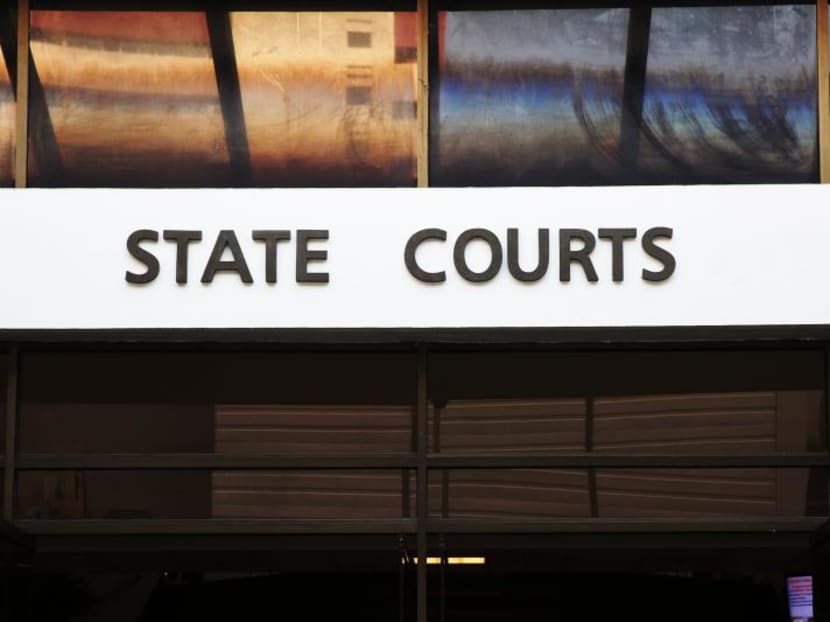Death of man who fell from hospital balcony ruled a suicide
SINGAPORE — A 58-year-old man, who had been worried about his health, showed signs of “mounting anxiety” shortly before he climbed over the balcony wall of a hospital ward on the ninth floor and fell four storeys to his death.

A 58-year-old man, who had been worried about his health, showed signs of “mounting anxiety” shortly before he climbed over the balcony wall of a hospital ward on the ninth floor and fell four storeys to his death.
The fall was ruled a “deliberate act of suicide” by State Coroner Marvin Bay. TODAY file photo
SINGAPORE — A 58-year-old man, who had been worried about his health, showed signs of “mounting anxiety” shortly before he climbed over the balcony wall of a hospital ward on the ninth floor and fell four storeys to his death.
The fall, which left Mr Tay Chin Tiam with head and chest injuries, was ruled a “deliberate act of suicide” by State Coroner Marvin Bay on Tuesday (Aug 22).
Court documents showed that Mr Tay, who had complained of abdominal pain, constipation and bleeding from the anus, was admitted to Ng Teng Fong General Hospital’s emergency medicine department on Feb 24.
Doctors found that Mr Tay had haemorrhoids, or piles, and admitted him to the surgery department.
He was then sent for an endoscopy, a non-surgical procedure, to diagnose problems in his upper gastrointestinal tract.
A colonoscopy was also attempted, but for reasons not stated in court documents, it was incomplete.
Mr Tay asked to be warded over the weekend so that another colonoscopy could be conducted on Feb 27. Later that day, his fever went up. Doctors suspected that he had a urinary tract infection and started him on a course of antibiotics.
On Feb 26, an on-call house officer and nurses at Ward 9 heard a scream, followed by a loud thud, at around 4.40am. The sounds came from the ninth floor.
The staff found the usually-locked door to the balcony — which doubles up as a fire-escape route — opened, with a pair of patient slippers placed at the balcony ledge. The emergency glass door release panel had been smashed, although no alarm was triggered.
They then found Mr Tay lying unresponsive on the open garden on the fifth floor.
He was rushed to the emergency department, where resuscitation was attempted at 5.13am. Despite three defibrillation attempts and 11 doses of adrenaline, he remained without a pulse, and was pronounced dead at 6.14am.
Video footage from the hospital’s CCTV cameras later showed Mr Tay pacing around the counter area in Ward 9 between 4.29am and 4.38am. He was last seen walking towards the door near the balcony around that time.
The inquiry heard that Mr Tay’s son, Ernest, had told the police that the late February hospital admission was the second time in a month that his father had been warded for pain around the rectal area.
After the earlier hospitalisation, the elder Mr Tay would pace around at home aimlessly, behaviour that his son felt was abnormal. He also passed his ATM card and passcode, as well as information on his other bank accounts, to Mr Ernest Tay.
The older man’s Internet search history on his handphone also revealed that he had looked up medical conditions such as anal and stomach cancer, and on suicide.
“Based on the evidence uncovered, there is no basis to suspect foul play. Mr Tay had displayed mounting anxiety over his troubling symptoms, and had taken steps to put his affairs in order,” said Coroner Bay.
“His fall from height ... is a deliberate act of suicide.”
In his findings, Mr Bay noted that the activation of the emergency door release panel should have sent a signal to the security control room. However, on that morning, there had been a 14-minute delay in the signal transmission. It was not stated in court documents why there was a delay.
He stressed that unauthorised access by patients or other persons to any part of a public hospital has to be detected in a timely manner and investigated quickly.
“This would help respond to any patients who may inadvertently place themselves at risk, and thwart those harbouring suicidal ideation from following through their plans for self-harm,” Mr Bay added.
He noted that following the incident, ST Electronics, the hospital’s security system vendor, had launched a “thorough” system investigation, which the coroner described as “heartening”.
This included replacing the central processing unit controller board of the affected electromagnetic lock, and testing all emergency door release panels in the hospital.






